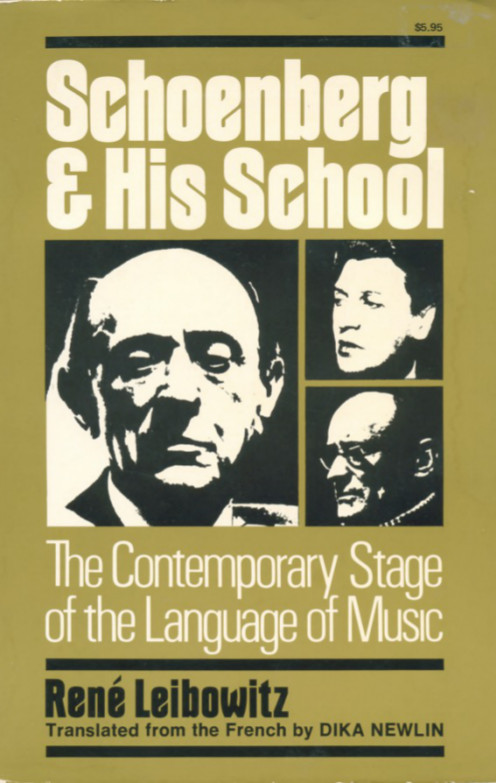John F Cline: Permanent Underground: Radical Sounds and Social Formations in 20th Century American Musicking (2012)
Filed under thesis | Tags: · 1960s, music, music history, music theory, musicking, noise
Musical labor entered a new phase of alienation following the advent of recording technology in the late 19th century. Whereas prior to recording musicians had a relatively direct relationship with their audience—the sum of the two groups constituting “musicking”—sound reproduction created a spatial and temporal dislocation between them. Most narratives of American popular music trace out a particular genre formation, and relate it to the culture from whence it emerged. By contrast, this dissertation begins from the point where musicking began to disengage from commodification, both at the level of social formation and of the creation of sound itself. Drawing on anthropologist Pierre Clastres’ notion of “Anti-State” modes of organization and cultural critic Ivan Illich’s concept of “conviviality,” or a human-centered rather than mass productionoriented use of tools—in this case musical instruments both handmade and modified—each chapter of this project tackles a different dimension of the quest for autonomous musicking, or a “permanent underground.” Chapter 1 examines the organizational principles that have run in parallel to the bureaucratic, capitalist manifestation of a “music industry” in the 20th century. Beginning with a critique of either/or fallacy of the opposition posited between “modernism” and “nostalgia,” the reminder of the chapter demonstrates the reconciliation between these two aesthetic and political positions; topics include the seizure of public space by itinerant blues musicians in the rural-industrial prewar South, the self-released recordings of gospel artists after WWII, the formation of experimental jazz collectives in the 1960s, and the relationship between psychedelic music and cults/communes in the 1960s. Chapter 2 critiques the function of genre in musicking as means to a reproducible sonic commodity, and argues for “noise” as an aesthetic intervention that disrupts the saleable nature of music—a political act in itself. Chapter 3 suggests several strategies for achieving “noise.” These include the repurposing of industrial machines as musical instruments, the incorporation of foreign musical traditions, and the use of collage as a formal principle. The final chapter profiles six collectives that have emerged since the late 1960s that adhere to the aesthetic and political values established throughout this dissertation.
Dissertation
Faculty of the Graduate School, The University of Texas at Austin, May 2012
Supervisor: Mark C. Smith
520 pages
René Leibowitz: Schoenberg and His School: The Contemporary Stage of the Language of Music (1947/1949)
Filed under book | Tags: · composing, composition, music, music history

“Founder of the atonal school of composition, Arnold Schoenberg (1874-1951) single-handedly revolutionized the whole of 20th century music. Recognizing that the tonal system of the past 250 years had outlived its usefulness, Schoenberg developed an entirely new system for organizing pitch, dividing the scale into 12 equal tones and eliminating the tonal center which had already reached its vanishing point in the chromaticism of Richard Wagner His twelve-tone scale set composers free from the strictures of the seven-tone scale, allowing them to explore in full the expanded tonal materials of the chromatic scale.
In this now-historic study of Schoenberg’s music and its impact on 20th-century composition, composer/conductor René Leibowitz–a student of both Schoenberg and Webern–traces the history of musical thought from the Renaissance through the early part of the 20th century, thus setting the stage for Schoenberg’s revolutionary abandonment of tonality. He also assesses the works of Schoenberg’s two star pupils. Alban Berg and Anton Webern He shows how Schoenberg’s methods were assimilated–conservatively by Berg and radically by Webern–maintaining throughout that theory was handmaiden to compositional artistry and not the other way around.
Originally published in 1949, Schoenberg and His School was in many ways a musical polemic, an artistic manifesto aimed at focusing public attention on the then neglected works of the atonal composers. Today, with the 1974 Centenary Celebration of Schoenberg’s birth, Leibowitz’ work has assumed renewed importance. Considered one of the most influential interpretations ever published of Schoenberg’s musical aesthetics and philosophy, it remains the touchstone for future considerations of Schoenberg’s contributions to 20th century music.”
First published as Schoenberg et son école, 1947.
This is an unabridged republication of the first edition published by Philosophical Library, New York, 1949.
Translated by Dika Newlin
Publisher Da Capo Press, New York, 1975/1979
ISBN 0306800209
305 pages
PDF (23 MB)
Comments (3)Simon Reynolds: Rip It Up and Start Again: Postpunk 1978-1984 (2006)
Filed under book | Tags: · music, music criticism, music history, punk

Rip It Up and Start Again is the first book-length exploration of the wildly adventurous music created in the years after punk. Renowned music journalist Simon Reynolds celebrates the futurist spirit of such bands as Joy Division, Gang of Four, Talking Heads, and Devo, which resulted in endless innovations in music, lyrics, performance, and style and continued into the early eighties with the video-savvy synth-pop of groups such as Human League, Depeche Mode, and Soft Cell, whose success coincided with the rise of MTV. Full of insight and anecdotes and populated by charismatic characters, Rip It Up and Start Again re-creates the idealism, urgency, and excitement of one of the most important and challenging periods in the history of popular music.
Publisher Penguin Books, 2006
ISBN 0143036726, 9780143036722
416 pages

